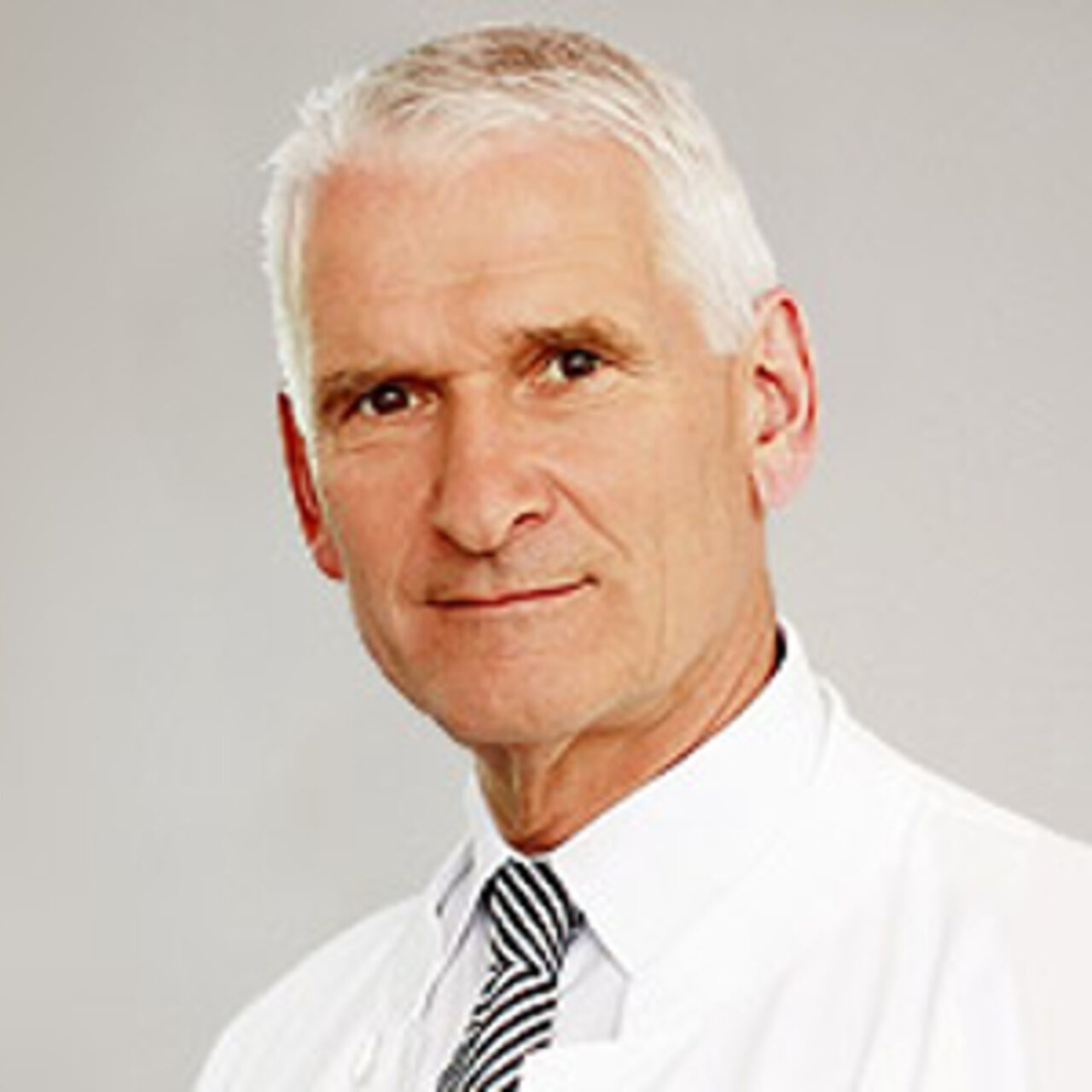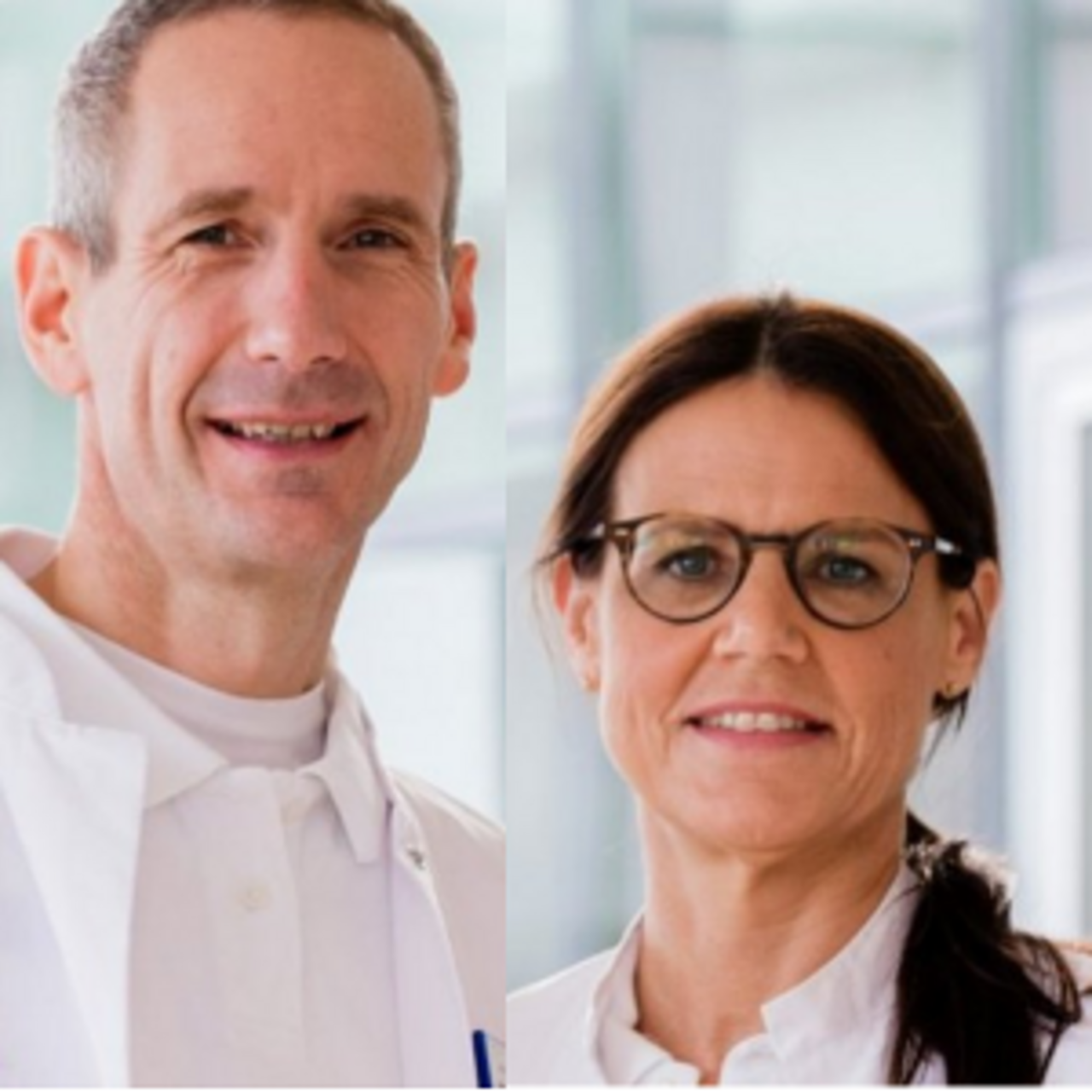Specialists in Spinal surgery
7 Specialists found
Information About the Field of Spinal surgery
What is Spinal Surgery?
Spinal surgery is a branch of human medicine, which deals with diseases, injuries and surgical, as well as conventional, treatment methods of the spine.
Common diseases treated by spinal surgeons are:
- Slipped discs
- Spinal canal stenosis
- Fractured vertebra
- Scoliosis
- Tumours of the spinal cord
- Degenerative instabilities of the spine.
When does a spinal specialist recommend a surgical treatment?
Surgical measures are taken for many different symptoms of the back. When conservative treatment options are not sufficiently effective and the symptoms – often pain or loss of function – do not improve, an operation can become necessary.
Spinal surgery in the case of slipped disc
A slipped disc means that the fibrocartilage ring tears away either partially or completely, causing a reduction in tension and the disc to fall forwards. Disc tissue also partially enters the spinal canal, which can cause extreme pain, as there are many nerve fibres here. Depending on where the slipped disc has occurred, the pain radiates into different areas and extremities of the body. It can also lead to uncomfortable sensations or reduced sensitivity, as nerve fibres can become compressed; in extreme cases it can cause symptoms of paralysis.
The diagnosis of a slipped disc can be assured with an imaging technique, such as a CT or an MRI scan. A disc operation is not always necessary; conservative treatment methods are usually preferred, particularly when no neurological dysfunction can be seen. Anti-inflammatory medication, infusions, or CT monitored periradicular infiltrations may be possible conservative treatment options.
A disc operation can be associated with major complications; therefore, an operation should only be considered if none of these conservative methods have been successful. The standard operation nowadays is the so-called microsurgical discectomy. The patient is put under general anaesthetic and in a face-down position, and through a small incision the slipped disc is partially or completely removed from the spinal canal. In this way, pressure in the spinal canal is reduced and the patient is free of pain. Although this method is very safe, it can still lead to complications, for example, the spinal canal can be damaged and result in temporary or permanent malfunction of a nerve fibre. Other risks are infections, haemorrhage, haematoma, and a recurring slipped disc. There is also the endoscopic discectomy, where, under local anaesthetic and with the aid of a small microscope, a small incision is made, and through this endoscope the slipped part of the disc is carefully removed.
Spinal surgery in the case of spinal canal stenosis
Age and excessive strain can cause wear and tear to the spine, that can lead to bony growths in the spinal canal, and consequently to a spinal canal stenosis or narrowing of the spinal canal. The vessels and nerves are consequently less well supplied and this can lead to the typical symptoms: pain and discomfort occurring at or below the level of the spinal canal stenosis. If no symptoms occur, this does not need to be treated. The treatment of a spinal canal stenosis consists of physiotherapeutic, drug therapy or surgical treatment; an operation is only necessary for about two percent of all patients.
An operation is always necessary when functional loss occurs or there is a significantly shorter pain-free walking distance, in other words, if the patient’s quality of life is severely restricted. Also in the case of a spinal canal operation, pieces that are pressing into the spinal canal and narrowing the structures are surgically removed. The aim here is to decompress and relieve pressure. There are many different surgical procedures which can be applied to spinal canal stenosis. These include:
- Ventral nucleotomy with fusion
- Ventral uncoforaminotomy with fusion
- Decompression with fusion
- Intradiscal electrothermal therapy
- Repositioning spondylodesis with fusion
- Corpectomy with spondylodesis
- Decompression with subsequent implantation of a prosthetic disc.
Spinal surgery in the case of scoliosis
Scoliosis is a degeneration of the spine, where the spine moves or rotates in a sideways direction. The cause is not yet known, idiopathic scoliosis is presumed. Only about ten percent of all patients with scoliosis show hereditary symptoms. Mild scoliosis can occur and cause practically no symptoms; it can, however, spread and deform other bony structures, for example the rib cage.
An operation can be avoided for more than 90 percent of patients with scoliosis, here the preferred treatment is physiotherapy and stabilisation of the spine. In some cases, however, the deformation can cause important organs to be compressed or shifted, which means that an operation is definitely necessary in these cases. The scoliosis operation has the following aims: to straighten the curvature, remove the rotation, stiffen the spine and to permanently fix the correction, for example using an implant. The operation can be done from the ventral, dorsal or even from both sides. In all cases the curvature is reversed through the insertion of screws and hooks into the spine and in this way stabilising its position.
Spinal surgery in the case of fractured vertebrae
A fracture can occur in any part of the vertebra and, depending its position and severity, can trigger various symptoms. The main cause of vertebral fractures are accidents, physical violence, or, for older patients, also falls. A fracture of the vertebra can often lead to displacement and splintering of pieces of bone into the spinal canal, which creates the risk of partial or complete paraplegia; consequently, every vertebral fracture must be taken seriously and treated accordingly. Apart from such unstable fractures, there are also stable vertebral fractures, which normally do not require an operation. They can be treated conservatively with physiotherapy and pain elimination.
The following are some of the symptoms can arise after a vertebral fracture:
- unnatural reflexes
- sudden severe back pain
- symptoms of paralysis
- uncomfortable sensations or reduced sensitivity in the affected area
- reduced mobility
- in extreme cases: paraplegia.
The main priority of the surgical treatment of a spinal fracture is the stabilisation of the spine. Here the vertebrae are connected statically and dynamically to achieve a degree of stability; in this way the constricted structures are relieved and further damage to the nerves and vessels is avoided.
Two methods can be applied here:
- Spondylodesis (vertebral blocking): at least two vertebrae are stiffened and fused together using screws and plates, to achieve the highest possible stability.
- Kyphoplasty: this is a minimally invasive procedure. A small balloon is inserted into the fractured vertebra through which bone cement is deposited, or the fractured vertebra is stabilised directly with bone cement.
Which doctors and clinics specialise in spinal surgery in Germany or Switzerland?
If you need a doctor you clearly want the best medical provision, which is why it is natural for a patient to wonder: how do I find the best spinal specialist or clinic for spinal surgery in Germany or Switzerland?
As there is no objective answer to this question, and a serious doctor would never claim to be the best, you can only rely on the expertise of a doctor. The more spinal operations a doctor carries out, the more expert they become in their specialist area. So, spinal specialists are specialists in neurosurgery or orthopaedics and trauma surgery, who have specialised in the diagnosis, treatment and operation of diseases and injuries to the spine.
We can help you find an expert for your disease. All doctors and clinics listed have been verified by us as having excellent specialist skills in the area of spinal surgery, and await your enquiry or request for treatment.
Sources:







